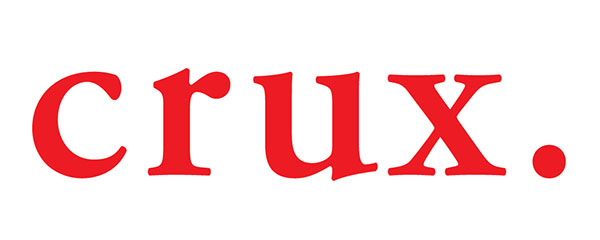By Melea McRae
Some of the best entrepreneurial advice I received from my mentor and business partner, Grant Burcham, was this: “You need to learn how to walk the plank, not the tightrope.”
Walking the plank didn’t sound all that appealing or stable, to say the least, however when you compare it to a tightrope, the plank is much more solid footing. Welcome to the life of the entrepreneur. We’re never going to be skipping on a wide sidewalk, metaphorically. The plank is good, so let’s strive for that.
As a business owner, you wear all the hats: Leader to your team, expert to your clients, and then you’re responsible for every critical function of the business, from business development to marketing to finance to operations to ultimate problem solver, and so on.
Getting pulled in a thousand directions is par for the course, and it can feel like you’re walking a tightrope with the weight of the world on your shoulders, doing everything you can to establish some sort of balance in your business and your life. If you can figure out how to delegate some of those tasks to others, that tightrope can feel more like a plank—a wider, sturdier base for you to move your business forward.
Finding your footing
I walked the wire for the first five years in business. I was juggling all the responsibilities of an entrepreneur while completing my executive MBA at Rockhurst University and being a single mom to my teenage daughter—my calendar was a game of Jenga – one misstep and things could come crashing down.
When I first met Grant and he asked what a typical week looked like for me, it didn’t take him long to diagnose my quandary. He then challenged me to look at my calendar from the lens of what I enjoy versus what I don’t to determine what could be delegated. If I didn’t have a person to delegate that task to, it was a huge sign that I need to hire that individual. As I dove into my calendar, I realized what I needed was a true second-in-command, freeing me up to focus on the critical roles only I could fill in my business.
Roughly nine months ago, Crux began implementing EOS, the Entrepreneurial Operating System. EOS is “a simple framework for defining what’s important, who owns it, and exactly what success looks like. With every member of your team accountable for a handful of goals and numbers, you’ll get consistently better results.” A major part of the EOS implementation is identifying core roles and responsibilities within the organization, building a structure that reduces complexity and creates clarity.
When our leadership team, along with our facilitator, defined our accountability chart (which outlines the key functions within the organization), I realized I sat in all five seats: the visionary, the integrator, sales/marketing, operations and finance. My only role needed to be that of the visionary, keeping a pulse on our company vision, developing client relationships, owning business development, serving on community boards, championing our culture and being the face of the brand to oversee our marketing efforts.
However, to wear the visionary hat, I needed to hire more senior-level talent to offload critical operational responsibilities. Enter President & Chief Creative Officer, Ethan Whitehill. From there, I focused on standing up the rest of the leadership team, filling all the necessary seats while coaching and training them to lead their respective departments.
A year later, Crux is a completely different company. The addition of key leaders—Chief Client Officer, VP of Strategy & Analytics, VP of HR & Talent Development, a fractional Chief Wellbeing Officer and a fractional CFO—have catapulted our organization to our next stage of growth (this year alone increased topline revenue by 150%), and we’ve integrated new verticals and operational capabilities into our offerings.
Letting go to grow
The first step in transitioning from the tightrope to the plank is identifying the tasks that don’t bring you joy and finding the right individual to own those responsibilities. Hire them if you need to (think of it as investing in the growth and sustainability of your business), and then coach and train the team up to fill their right seat (determined by three key metrics: Do they get it, want it and have the capacity to own it?)—and don’t be afraid to bring in an expert coach or EOS facilitator to assist.
A few months ago, I attended Rockhurst University’s Leadership Series featuring New York Times columnist and Pulitzer Prize-winning author Thomas Friedman. During his keynote address, Friedman shared some great advice, but the one line that stuck with me was, “Trust is the only legal performance-enhancing drug.” Meaning that for those around us to achieve their fullest potential, we must trust in their ability to get the job done.
Crux is my “baby,” and after wearing all the hats myself for so long, it was a challenging to start delegating. I realized quickly, though, by trusting others to own their roles, I’m able to focus on what I love…being the culture champion and keeper of the “why” while maintaining those big relationships and thinking about the next big ideas —the work that drives my passion and allows our organization to grow and prosper.
Sometimes as the entrepreneur, we’re our biggest roadblocks. Don’t be the reason your business doesn’t succeed, you shouldn’t wear all the hats. Continue to grow as a leader, delegate the necessary roles and responsibilities to grow your business, and don’t look down, look forward because it’s ultimately up to you whether you walk the plank or the tightrope.
Melea McRae is helping businesses elevate their brands and amplify their missions at Kansas City’s first “un-agency.” Connect with Melea on LinkedIn or share your thoughts on Facebook or Twitter.


